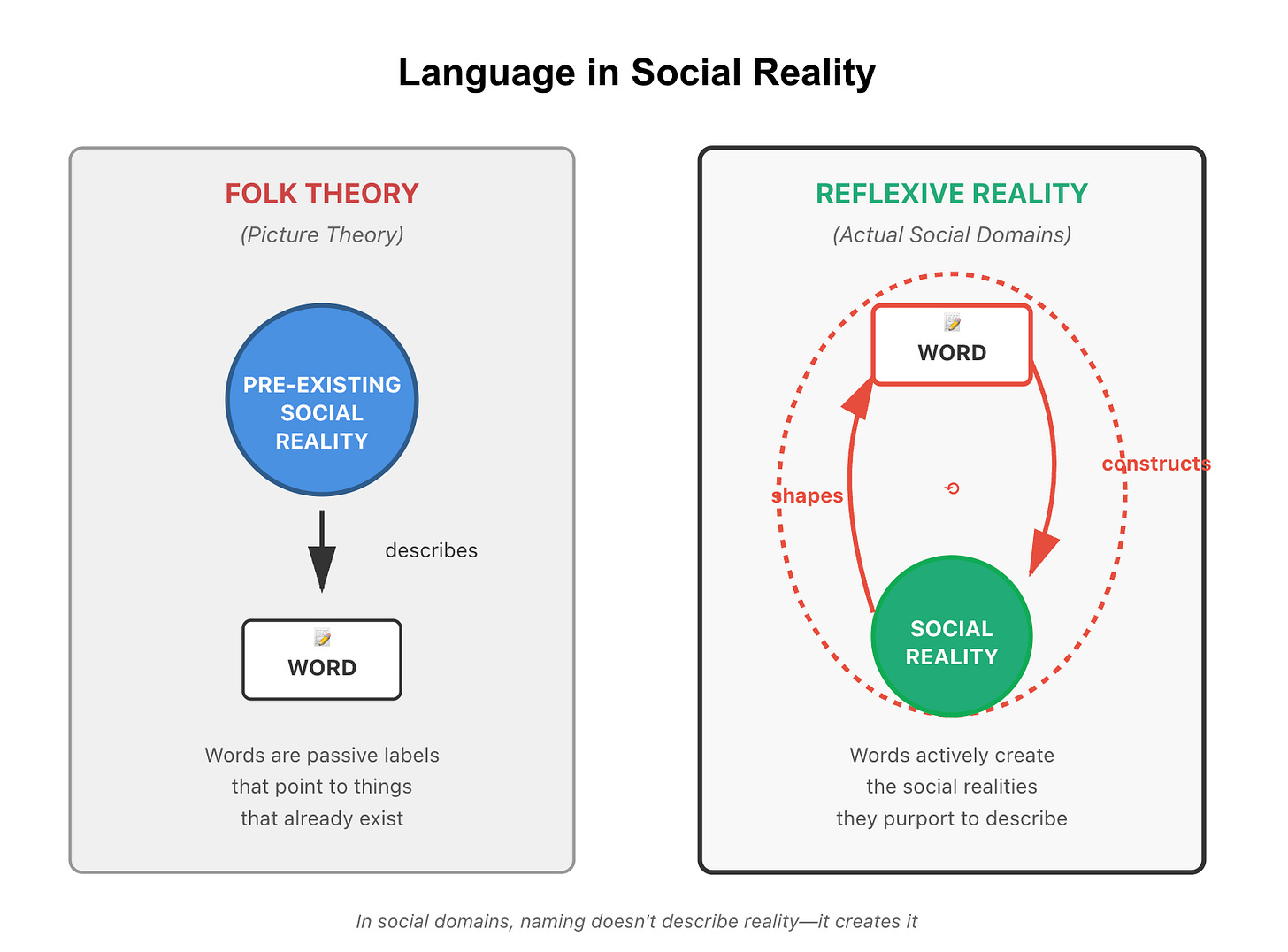What are we fighting for?
Hearts and minds
If we are in an infowar then what’s the prize we’re fighting over? Land? Money? Perhaps something as grand as Reality itself? Well… Yes.
What is Reality?
“Reality is that which, when you stop believing in it, doesn’t go away.” — Philip K. Dick
According to Philip K. Dick’s widely circulated definition, reality is whatever doesn’t go away just because you stop believing in it. That is: reality is whatever has belief-independent existence.
His definition captures material reality very well. Storms, rocks, chemical reactions, orbital mechanics—all phenomena that entirely disregard whatever you believe about them.
But is material reality all there is?
I’d venture to suggest that a good yardstick for “real” is impact and that, by that measure, we’re as affected by things that aren’t material at all.
Social Reality
“True if Big” — Me
Men barge in and say they’re the Police, here to take you to Court for Violating the Law by not paying your Taxes to the State.
Notice anything about the previous sentence? Perhaps the odd capitalization?
I capitalized every term that is not materially real but that is—as you realize now, sitting in the Jailhouse— very much real in its impact.
The Police, the Court, the Law you Violated, Taxes, and the State are all belief-dependent, but stick sufficient belief together and you get institutions: illusions with consequences, also known as “Social Reality”.
Just because it’s illusory doesn’t mean it’s not load-bearing
You can imagine people who philosophically disagree with the existence of Taxes, the State, the Law, the Courts, and the Police. You can even imagine someone so terminally materialistic—prior to their stint in Jail— that they take Dick’s definition sufficiently to heart to believe Taxes, the State, the Law, the Courts, and the Police are not real because they go away once you stop believing in them. Unfortunately, they still believe in you.
Fact is, someone unilaterally dropping their belief in something that is socially real does very little to make it go away. The President is the President no matter how many times you individually shout “Not my President”.
If you got everyone else to do it too, however…
It sounds promising until I clarify that by “everyone” I mean everyone: the President is the President because everyone believes everyone believes everyone believes (sic.) he’s the President. If everyone stopped believing it (and stopped believing everyone else believed everyone else believed it) he’d stop being the President that very moment.
But not before then.
Which leads us to a new reading of Dick’s dictum: “Reality is that which, when you [unilaterally] stop believing in it, doesn’t go away.”
Social Reality is what we’re fighting over
Language is great for accurately describing the material domain. To map that part of Reality. It works stupendously for that.
In the social domain, however, things are different: language about social reality quickly becomes a way to fight over it.
And the reason is simple: in social reality, language is reflexive: the map doesn’t just describe the territory—it shapes it.
It is precisely because people don’t know that, because people mistakenly believe language functions the same way in the social domain as in the material domain, that controlling language is a viable way to control reality. While material reality is immune to language, social reality is made out of language.
And that is why the infowar is linguistic and why it is ongoing: the ongoing mistake keeps the incentives for the conflict alive: control the map—the categories, the names, and the framings used—and you control what becomes socially—and thus actually—real.
So, to answer our opening question: the battlefield is language; the stakes are social reality; and the prize is the Map.
